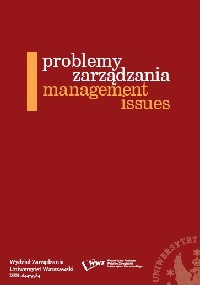Typical and Atypical (Flexible) Forms of Employment. Between Security and Flexibility
Typical and Atypical (Flexible) Forms of Employment. Between Security and Flexibility
Author(s): Andrzej PatulskiSubject(s): Labor relations, Socio-Economic Research, Labour and Social Security Law
Published by: Wydawnictwo Naukowe Wydziału Zarządzania Uniwersytetu Warszawskiego
Keywords: typical and atypical forms of employment; labour market; labour code;
Summary/Abstract: This article indicates that the traditional model of full-time employment based on an employment contract for an unfixed term – where the employee carries out a certain kind of work under the guidance of the employer and in a location and at times designated by the employer – becomes doubtful for some categories of employees (e.g. top managers, advisers, experts, those compiling various assessments and evaluations, providing legal and financial-economic services, giving lectures, providing various forms of mediation and agency, investor supervision). From the macro point of view and from the organizational point of view, we must answer the questions: what employment policy should be led towards a given category of labour resources, either flexible or stable; and how to avoid the accusation of a discrimination practice within the same category of employees. This article analyses selected atypical forms of employment in Poland and their impact on the labour market.
Journal: Problemy Zarządzania
- Issue Year: 17/2019
- Issue No: 6 (86)
- Page Range: 31-57
- Page Count: 27
- Language: English

